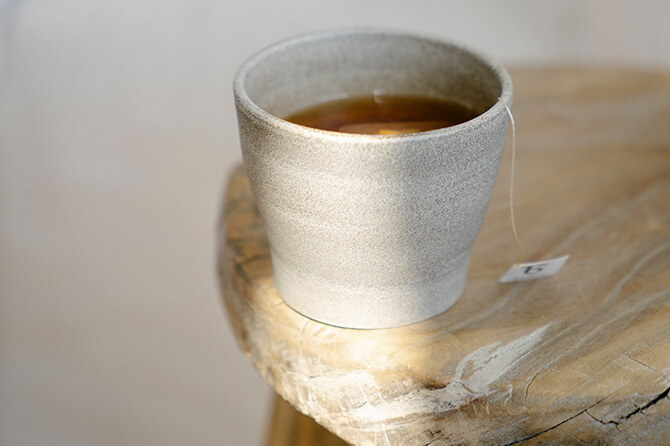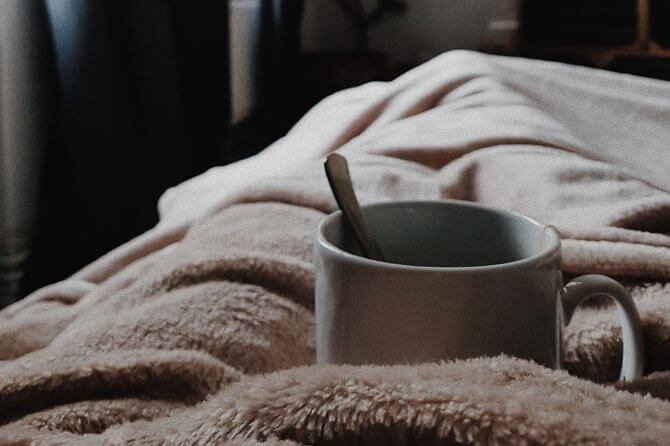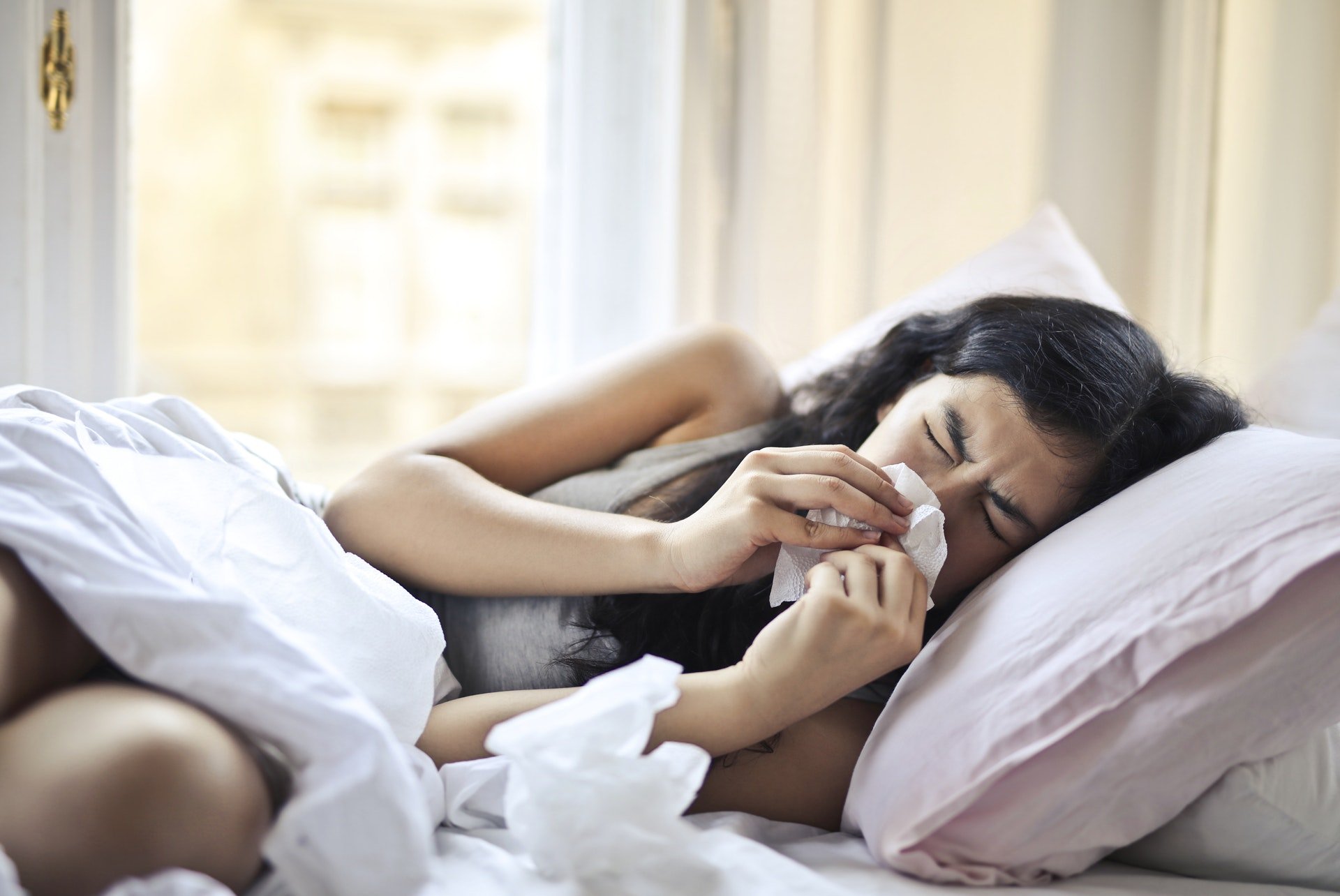
What’s the Best Bedtime Tea?
Bedtime teas are everywhere, with each claiming to possess the secret ingredient for a good night’s sleep. But don’t worry if you can’t tell your passionflower from your valerian root, we’ve got you covered as we investigate the best sleepy teas. [With an assist from a tea expert or two.]
A brew. A cuppa. Rosie Lee. The humble cup of tea goes by many monikers and is a staple of daily life for millions of people.
Whether black tea served milky and sweet or lemon zinger served steaming and neat, tea is incredibly versatile and is consumed by the gallon as a mood-booster, energy-booster, and concentration-booster.
But what happens when your day is done, and your focus shifts from energizing to unwinding for a good night’s sleep? Is tea still on your side?
According to Angela Pryce, Senior Tea and Coffee Buyer at Whittard of Chelsea, the answer is a resounding yes.
“It comes down to functional benefits,” she says. “There are certain herbs that have been used for centuries for things like sleep and other medicinal purposes. In fact, there are a group of herbs that are well regarded in that way.”
So, whether soothing camomile or fragrant lavender, the right choice of tea before bed can promote natural relaxation and support your transition to dreamland. (As long as it doesn’t contain caffeine!)
So, what is the best tea for sleep? We investigated. But before we dive in…
How Does Tea Help You Sleep?
Herbal teas are naturally caffeine-free and suffused with herbs that promote natural sleep. Studies have shown that they can improve the quality of sleep you get by reducing anxiety and promoting relaxation.
But it’s more than just physical effects on your body, according to Angela there’s a powerful psychological aspect, too.
“There’s something about the ritual and the winding down process. If you think about mental well-being and preparation for sleep, the process of making tea or a herbal drink is incredibly relaxing. Having that built into your winddown routine every evening is something that can only help”By consistently including brewing and drinking tea in your bedtime routine, you’ll signal to your brain that it’s time to begin the wind-down process, which will further boost the quality of your shuteye.
But different teas pose different benefits. So, in the spirit of improving your slumber, let’s delve a little deeper into the fantastically fragrant world of tea that helps you sleep.
FYI: It’s important to remember that herbal teas can trigger strong reactions in people who are pregnant and interact negatively with certain medications, so it’s always wise to do some further research if you’re planning to include them in your nightly routine.
1. Camomile Tea
The Romans knew it. The Egyptians knew it. By the end of this paragraph, you’ll know it. Camomile is a multi-purpose hero herb that can be used to reduce symptoms of anxiety, treat stomach aches and, you guessed it, improve sleep quality.
And it’s a perfect introduction to the world of bedtime teas, too.
“Camomile is a great entry-level herb.” Says Anna. “If someone’s looking for something that tastes pretty mild, with quite a gentle sweetness, camomile is ideal. And it’s been used for many years to induce calm and promote sleep.”
And it comes with another expert’s recommendation, too.
For Jemma Swallow, owner of speciality loose tea leaf company The Tea Box, trading since 2007 “whole camomile flowers provide the most relaxing tea. It’ll help you fall into bed for a good night’s sleep.”
But how does camomile tea help you snag those all-important zzzs?
Possessing a mild (and totally harmless) sedative effect, chamomile contains an antioxidant that, once drunk, binds with certain receptors in your brain, leading to a feeling of drowsiness. Studies have shown that chamomile tea can improve the quality of sleep and alleviate symptoms of mild depression.
How to Make Chamomile Tea at Home
Chamomile flowers are readily available online and in stores, so if you’d like to make a cup of calming chamomile tea from scratch, simply:
- Heat water to a boil. (Stovetop or kettle.)
- Place fresh chamomile flowers in a teapot and pour in the boiling water. (If you have an infuser, you can pop the flowers in there.)
- Leave to steep for 4 – 5 minutes.
- Strain, sweeten (with honey or agave nectar), and serve.
It’s worth noting that herbal teas are best taken without milk. According to Angela:
“With herbal products, you never add milk. And you should always prepare them using boiling water, leaving them to brew for five minutes.” She says. “If you’re looking for a little more sweetness, you could add a drop of honey, but I would recommend tasting without first.”
2. Peppermint Tea
If you struggle to sleep when suffering with your sinuses (due to either a persistent cold or seasonal allergies) peppermint tea might offer some relief with its antibacterial and anti-inflammatory properties.
How? Aside from being rich in immune-system-boosting antioxidants, peppermint tea, when steeped, releases essential oils including menthol and limonene – both proven to lower the amount of cortisol (the stress hormone) in your blood, thereby alleviating symptoms of anxiety.
What’s more, a freshly brewed cup of peppermint tea can relieve any digestive discomfort you may be experiencing as well as relax your muscles, making it the ideal bedtime tea if you struggle with bloating or gastric cramps.
What’s more, it smells fantastic! Breathing its vapours can help to unclog your sinuses, as well as easing nausea.
If you need us, we’ll be busy setting up the peppermint tea fan club…
Peppermint Tea: Bonus Fact
Life is stressful This, you know. It’s filled with work deadlines, minor disputes, and so much travel. It’s enough to give you a headache.
As such, it might be tempting to dose up on painkillers when a tension headache descends, but prolonged painkiller use can trigger headaches, so what to do?
Drink peppermint tea. Even the vapours of peppermint tea can ease tension headaches and migraines and drinking it can relax the muscles in your neck and shoulders (where the tension lives).
3. Lavender Tea
Let’s spill the (lavender) tea. Another Roman throwback (toga-wearing herbologists, that they were) lavender is sleep-aid royalty, found in everything from pillow mists to scented soaps, shampoos to essential oils. It even comes in biscuit form.
It’s no surprise, then, that lavender tea is often people’s go-to sleep tea. If asked to pick up some sleepy-time tea for a friend, you’d probably pick up a box on pure instinct.
And you’d be right to. Mostly. It’s complicated.
You see, while lavender is often used to treat sleep disorders, its effect isn’t of the ‘you’re-feeling-very-sleepy’ variety and more of the ‘I-slept-like-a-log’ variety. Meaning?
Lavender supplements (which, for argument’s sake, we’ll file lavender tea under) are better in the short term and are more conducive to staying asleep, rather than getting to sleep. It’s neither a stimulant nor a tranquiliser.
Where it shines, though, is in reducing night-time waking, so it’s highly beneficial if you find that drifting off is easy but staying under is more difficult.
It even features in not one, but two of Angela’s recommended bedtime teas, including the limited edition All is Calm blend, which infuses lavender with fennel, cinnamon, black pepper, cloves, beetroot, and ginger, for a supremely savoury mix.
The Many (Many) Uses of Lavender
A brief pause of our bedtime tea exploration to take stock of the many diverse forms of lavender: a herb more ubiquitous at bedtime than pyjamas. You can find lavender in:
- Essential oils Pillow mists
- Bedtime teas (obviously)
- Mustard (bafflingly)
- Supplements
- Biscuits
- Jam
- Slumber gel
- Muscle rub (like deep heat, but more fragrant)
- Soap
- Eye roll-ons
Bet the Romans didn’t use it in mustard.
4. Valerian Tea
Occasionally referred to as a ‘magic potion’ for sleep (a nickname reinforced by its actual name) valerian tea is a perennial favourite on roundups of tea that helps you sleep.
And for good reason. Brewed from the roots and underground stems of the valerian plant, valerian tea contains compounds that act on GABA receptors (a neurotransmitter that helps regulate nerve impulses) in your brain. It’s not unlike how common anti-anxiety medication works.
Compounds in valerian also interact with your serotonin and adenosine receptors – both of which play a key role in regulating mood and sleep. The result? A pleasant, tranquil feeling and increased likelihood of a full night’s sleep.
Effects of valerian (in tea or any other form) include improved sleep, decreased stress, and even relief of menstrual symptoms – all of which impact your quality of slumber.
Valerian Tea: Brewing and Tasting Notes
Valerian tea is notable for its bold flavour. To put it frankly, it’s an acquired taste. For the uninitiated, it’s said to taste quite ‘earthy’, like root vegetables only much stronger.
As such, people tend to sweeten their valerian tea with honey or agave nectar to brighten up the mossy, woody notes. FYI: the longer you leave valerian tea to brew, the stronger it’ll be.
5. Hibiscus Tea
A fantastically fruity, sumptuously sweet tea that’s also a valuable sleep ally? Sign us up.
As bedtime tea goes, hibiscus is an excellent all-rounder; capable of relaxing muscles, lowering blood pressure, and fighting inflammation – each of which can conspire to steal your forty winks.
But it doesn’t stop there. Hibiscus tea is also notable for its anxiolytic (relating to anxiety) qualities and contains vitamins and minerals such as flavonoids, which carry antidepressant qualities and work to soothe the nervous system.
Bedtime Teas: Final Thoughts
Despite some suggestions otherwise online, it’s perfectly safe to drink herbal teas on a daily basis, provided you’re using a blend that’s been sold through reputable channels and your consumption isn’t excessive.
It’s also worth noting that there’s a slight difference between using loose ingredients and bedtime teabags.
“With loose, you always get much more flavour, but it generally takes longer to brew, whereas bags are much quicker. That said, teabags – like our sleepy infusion bags – are much more convenient, so it’s about finding a balance.”

And that’s it. May you brew your (bedtime) tea with confidence and sleep peacefully through the night. Check out our sleep blog for more expert insights and handy tricks on getting better sleep.









Leave a Reply